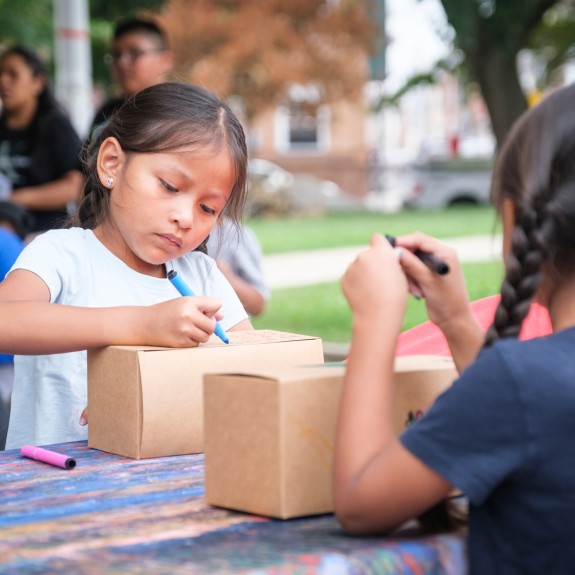How to Apply
Applying for a grant should be a good opportunity to think about and explain your work. It shouldn’t be a stressful hurdle. Below, learn more about our streamlined process and the steps to apply.
Applicants want a simple way to apply for grants, clear goals and criteria, a transparent process, interaction with our staff, and opportunity to familiarize our staff with your organizations and communities. Our process is designed to address those interests.
Proposals for funding can be submitted to the Foundation in two ways:
- Through our Request for Proposal (RFP) process
- Through an Open Application
While the majority of our grant budget will be awarded through RFPs, we welcome inquiries and ideas outside of the RFP process. Proposals submitted outside of the RFP process must clearly advance a specific objective and will be considered if they fill a specific gap in our funding or address time-sensitive opportunities that would otherwise be lost.
We use one standard grant application and process across all programs.
Review Application and Additional Guidelines Here
Also, we ask each applicant to include a project budget with their proposal. As part of that budget, the Foundation will add a set percentage for overhead or general expenses.
We expect the timeline between application submissions and grant decisions to be about 90 days.
Here is a general overview of the steps:
- A grant seeker submits a written application
- Foundation staff members review the application
- Applicants who advance past the written application review take part in a site visit so that Foundation staff can learn more about your organization and proposal
- Foundation staff prepare a recommendation for our Board, who make final funding decisions.
1. Review Our Program Areas
How does your work intersect with our grantmaking programs? Learn about our programs, goals, strategies, and objectives to determine the best fit for your best idea.
2. Search Requests for Proposals
Once you identify the program goal and objective that you are helping to advance, review our RFPs. You can browse all below.

3. Create an Account in Our Portal
If you are interested in applying for funding, your next step is to make an account on our online application portal.

4. Apply in Response to an RFP
You will apply for funding through your portal account. No applications will be accepted via email.
Open Grantmaking
We highly recommend submitting your proposal through our RFP process, as very limited funding is available outside of RFPs.
Organizations that apply through the open application process must still advance a specific Foundation objective and should only apply through our open grantmaking if it is for an urgent opportunity that would not be possible through a future RFP. Applications submitted through this process are considered on a rolling basis. For more information, you can contact the staff member associated with the relevant Foundation objective or submit an application at any time through our Grants Portal.
We’re Here to Help
Our team is here to make the process of applying for funding as simple and straightforward as possible. If you have questions about an objective, specific RFP, or the substance of your idea, please contact the program officer listed on the objective or RFP.
If you have questions about our online portal or your portal account, contact our grants team: [email protected]